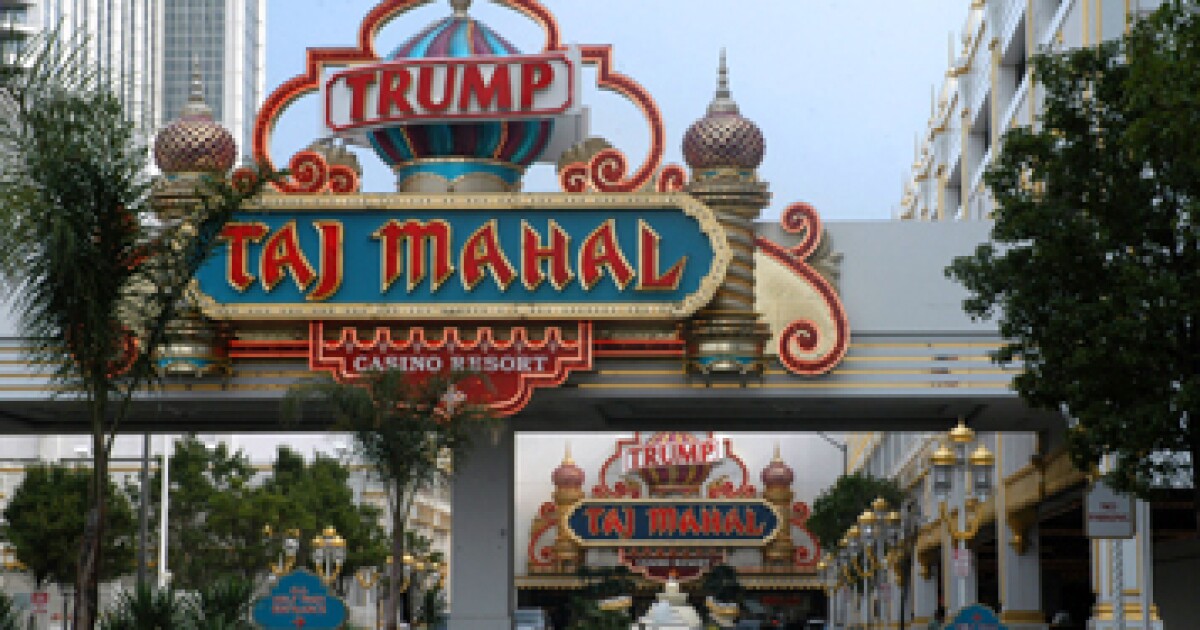Taj Mahal Casino Atlantic City Closing
The closure of Taj Mahal will leave Atlantic City with seven casinos; as recently as 2014, it had 12. The closings killed thousands of jobs, rocked the real estate market, and killed tax. ATLANTIC CITY — When the Trump Taj Mahal Casino Resort closed its doors for good, it signaled the continuation of one of the darkest eras in the history of the city. A year ago Tuesday, at 5:59.
 Oliver Staley
Oliver StaleyCulture & lifestyle editor

When Donald Trump opened the Trump Taj Mahal in Atlantic City in 1990, the superlatives flowed like cheap champagne.
It was world’s biggest casino. It had the most slot machines and gambling tables. It had twice as many parking spaces than any other in Atlantic City.
The Taj Mahal’s run as the greatest didn’t last long. A little more than a year after it opened, the casino was in Chapter 11 bankruptcy, the first of many setbacks for the property.
Today (Aug. 3), the resort’s management announced the property would close after Labor Day. It blamed workers who went on strike July 1 to regain health benefits lost in its most recent bankruptcy.
The casino is owned by investor Carl Icahn, who took control of it when it emerged from bankruptcy in February. Icahn also owns the Tropicana, which he also acquired out of bankruptcy.
“The Taj is losing multi-millions a months and now with this strike we see no path to profitability,” said Tony Rodio, the CEO of Tropicana Entertainment, in a statement. “Our directors cannot just allow the Taj to continue burning through tens of millions of dollars when the Union has single handedly blocked any plan to profitability.”
Bob McDevitt, head of the local Unite Here union, told the Wall Street Journal that Icahn wants to break the union, and “would rather burn the Trump Taj Mahal down just so he can control the ashes.”
Taj Mahal Casino Atlantic City

Taj Mahal Casino Atlantic City Nj
While Icahn is the billionaire shutting the casino, Trump isn’t blameless. Under his tenure, the three Atlantic City casinos he developed—the Taj is the last one operating under the Trump name—suffered from underinvestment and poor management, as he loaded the casinos with debt and milked them for cash.
“Early on, I took a lot of money out of the casinos with the financings and the things we do,” he told The New York Times earlier this year. “Atlantic City was a very good cash cow for me for a long time.”
Atlantic City, always a second-class citizen to Las Vegas, enjoyed a brief resurgence a decade ago, after the opening of the Borgata, an upscale competitor to the Taj, spurred new investment and interest. But the opening of new casinos in Philadelphia and New York sucked the gamblers out of the city, and gambling revenue fell from $5.2 billion in 2005 to $2.6 billion last year.
Trump shed his last financial stake in the company in February, when it emerged from bankruptcy. He had owned 10% of the Taj Mahal since 2009, in exchange for the use of his name. But in 2014, he sued to have his name removed, arguing that the casino’s ”utter state of disrepair” was tarnishing his good name.